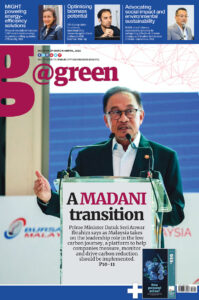THERE are many more sustainable or ethical funds to choose from than those engaged directly in the ‘greening’ economy.
With the help of investment platform AJ Bell, the top-performing open-ended investment companies (OEICs) of the last three years are sorted through- reasoning that in a rapidly developing field, recent performance should be given more weight than in most sectors – to pick out eight funds.
Benchmarking in this area is haphazard, however, which makes comparing performance tricky.
According to Laith Khalaf, a financial analyst at AJ Bell, the two consistently stand-out performers are Blackrock Sustainable Energy and Pictet Global Environmental Opportunities. Pictet GEO holds companies focusing on energy efficiency and invests in companies tackling other vital environmental issues such as waste management and pollution control.
“It is the only fund in our table that has beaten the world index and the global funds sector over 10 years.”
A quick look at a list of 1,642 widely available OEICs shows the Pictet GEO fund sneaks into the top 100 performers over the last three years with its total return of nearly 50 per cent.
Khalaf added: “Guinness has an absolutely awful period of performance shortly after it launched, losing around 80 per cent of its value between 2008 and 2012. Not many funds make it back from that kind of sustained poor performance, but Guinness Sustainable Energy has shown some bouncebackability, and recent performance has seen a marked improvement.”
The Impax fund is something of an anomaly as it invests exclusively in Asia – although, given the region’s rapid recovery from the Covid crisis and the China emissions pledge, this might be no bad thing.
WHEB Sustainability is the closest thing to a general ESG fund, but an examination of its holdings show a focus on specifically green sectors. The fund invests globally across themes like environmental services, resource efficiency, water management, sustainable transport and cleaner energy.
Jupiter Ecology is an old-timer for this sector, managed by Charlie Thomas since 2003. It makes long-term investments in companies which are involved in recycling, energy-saving and water treatment.
The youngest fund on the list meanwhile, Nordea, has a strategy devoted to resource efficiency and companies improving efficiency with their products and services. One holding is HexCel Corp, the leading carbon fibre producer in the world.
Khalaf noted the specialist nature of these funds meant they weren’t the cheapest. “A typical active fund costs around 0.75 per cent and several of these funds charge considerably more than that.”
Looking forward, he concluded: “With the race for clean energy really taking off in recent years as fears over climate change have heightened, it’s a good bet that conditions in the next 10 years will look more favourable for these funds than the last 10 years.”







